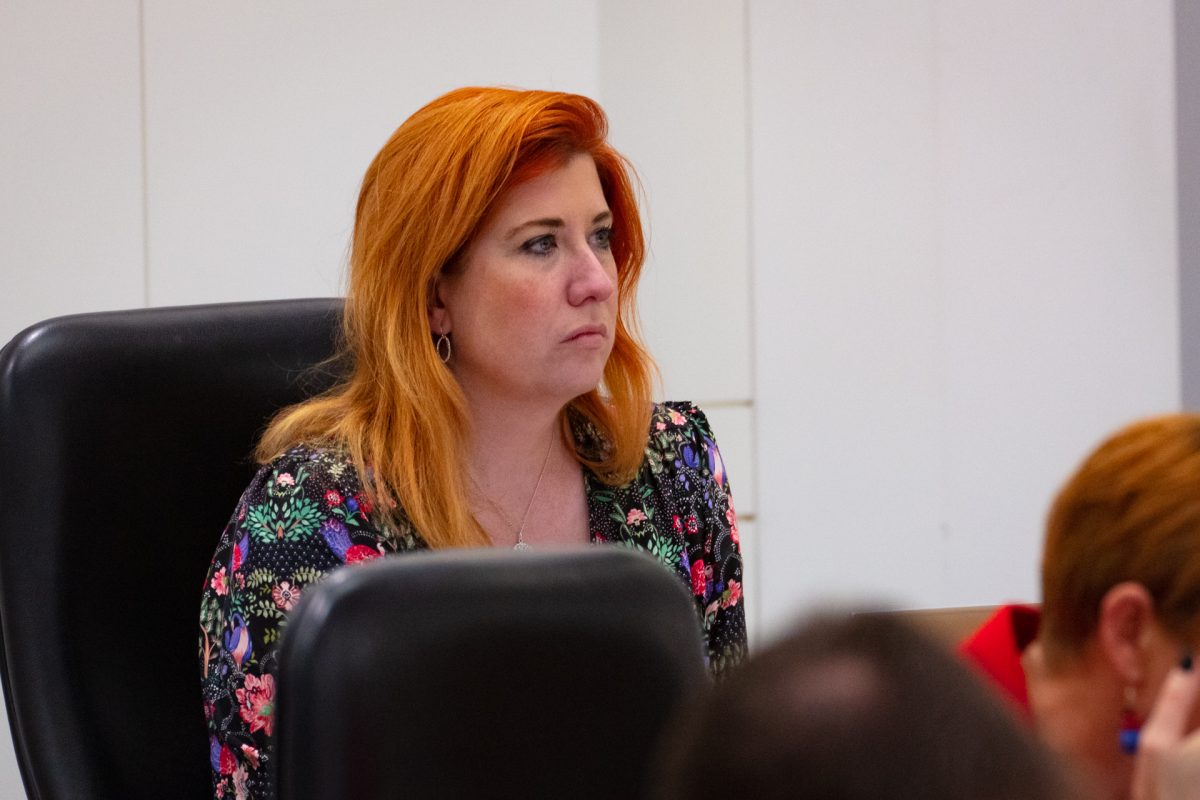
Human Rights Minister Tara Cheyne updated the Legislative Assembly on progress to make voluntary assisted dying possible in the ACT. Photo: Thomas Lucraft.
A law to formalise voluntary assisted dying (VAD) in the ACT will be introduced before the end of the year, but there will be a considerable lead-in time to implement the reform once passed.
Human Rights Minister Tara Cheyne released the results of community consultation in a listening report on Thursday (29 June), which had been undertaken over eight weeks.
Some key themes were identified from the more than 100 formal submissions from individuals and organisations, 366 short answer submissions from individuals, and several roundtables and workshops with key stakeholder groups.
Ms Cheyne said feedback was generally in favour of building upon the protections of the general approach taken by other jurisdictions, known as the ‘Australian Model’.
“Specific aspects of the Australian model that were emphasised by contributors were the need for strict eligibility requirements, a thorough request and assessment process, and the provision of support and information through a Care Navigator service, pharmacy service, and an independent oversight body,” she said.
There were also some aspects of the Australian Model that feedback showed could be improved, including removing “arbitrary limits” of the timeframes to access the VAD process, given the difficulties in estimating how long someone may have to live, and how navigating end-of-life care can become more difficult as illnesses progress.
There was also strong support for “mature and capable” people under the age of 18 years who were suffering.
“Support was particularly strong from those with lived experience of young people suffering with incurable, terminal diseases, including parents and clinicians,” Ms Cheyne said.
“Many contributors noted that limiting voluntary assisted dying to those over the age of 18 was an arbitrary limit, given young people under the age of 18 also experience intolerable end-of-life suffering through terminal illnesses and should have the same end-of-life choices as adults.
“Health professionals noted that, if pursued, this would need to be carefully implemented.”
Ms Cheyne said it was strongly supported that VAD must not detract from the role that the palliative care system had in the Territory.
She said the government was committed to ensuring the ongoing quality and accessibility of palliative care to ensure VAD was a “genuine choice”.
Another area of support was for incorporating VAD as part of advanced care planning, so it could be accessed or available for those who had lost capacity, such as advanced dementia.
However, this is something that won’t be considered in the short term.
“The ACT Government will be maintaining the position outlined in our Discussion Paper and throughout our consultation, that voluntary assisted dying will only be available to those people who retain decision-making capacity throughout the entire process,” Ms Cheyne said.
“This is because, in addition to support for voluntary assisted dying to be part of advanced care planning, our consultation also revealed considerable complexity in the matter, not least of which is that the voluntary nature of voluntary assisted dying can be seen to be compromised if the administration of the voluntary assisted dying substance is not truly voluntary.”
She noted that other jurisdictions had been considering this option, but none had taken the steps as yet.
“Some of the policy complexities explored in other Australian jurisdictions include that it is difficult for advance care planning documents to resolve exactly when a VAD substance should be administered,” Ms Cheyne said.
“Further, determining when a person’s subjective experience of suffering is difficult if the person loses decision-making capacity.
“However, noting the strength of the support in the ACT – and more broadly, indeed nationally – we will commit to considering this issue further once our voluntary assisted dying scheme has been in operation for several years.”
Other areas that received support included health practitioners being able to conscientiously object to be involved in the VAD process (as long as it doesn’t hinder a person’s access to quality end-of-life care) and many were open to suitably qualified, experienced and trained nurses to have a significant role in the process, potentially including in a consulting or coordinating role.
It was also highlighted that consideration would need to be given to the access of people living in regional NSW and the Capital region, as well as the specific cultural needs of First Nations communities.
For faith-based service providers in health and aged care, while it was noted they should be able to operate in accordance with their values, most contributors in this space noted the providers should also be required to “facilitate an eligible patient’s access to voluntary assisted dying”.
It’s expected the ACT’s VAD legislation will allow time to implement the legislation once the law has been debated, potentially amended, and voted upon.
Other jurisdictions have allowed for about 18 months after the passage of their VAD laws to set up safeguards, educate and train health professionals, and develop educational tools and guidance for the community and health services.
The 2023-24 Budget included funding to establish a cross-directorate VAD team to support policy design and legislation.
The Voluntary Assisted Dying listening report and snapshots are now available online.
If the issue of voluntary assisted dying raises issues for you or your family, you can contact Lifeline on 13 11 14 or Griefline on 1300 845 745.





















